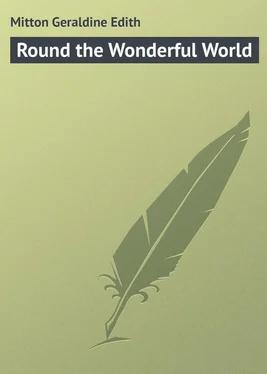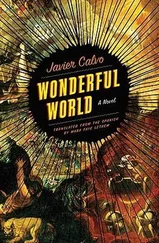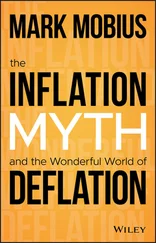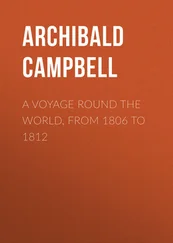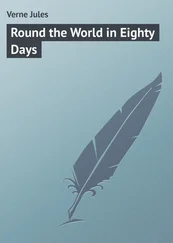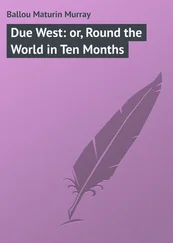Geraldine Mitton - Round the Wonderful World
Здесь есть возможность читать онлайн «Geraldine Mitton - Round the Wonderful World» — ознакомительный отрывок электронной книги совершенно бесплатно, а после прочтения отрывка купить полную версию. В некоторых случаях можно слушать аудио, скачать через торрент в формате fb2 и присутствует краткое содержание. Жанр: Путешествия и география, foreign_prose, foreign_language, на английском языке. Описание произведения, (предисловие) а так же отзывы посетителей доступны на портале библиотеки ЛибКат.
- Название:Round the Wonderful World
- Автор:
- Жанр:
- Год:неизвестен
- ISBN:нет данных
- Рейтинг книги:4 / 5. Голосов: 1
-
Избранное:Добавить в избранное
- Отзывы:
-
Ваша оценка:
- 80
- 1
- 2
- 3
- 4
- 5
Round the Wonderful World: краткое содержание, описание и аннотация
Предлагаем к чтению аннотацию, описание, краткое содержание или предисловие (зависит от того, что написал сам автор книги «Round the Wonderful World»). Если вы не нашли необходимую информацию о книге — напишите в комментариях, мы постараемся отыскать её.
Round the Wonderful World — читать онлайн ознакомительный отрывок
Ниже представлен текст книги, разбитый по страницам. Система сохранения места последней прочитанной страницы, позволяет с удобством читать онлайн бесплатно книгу «Round the Wonderful World», без необходимости каждый раз заново искать на чём Вы остановились. Поставьте закладку, и сможете в любой момент перейти на страницу, на которой закончили чтение.
Интервал:
Закладка:
When Maria was about seven the whole family moved into a town where the narrow streets were always dark between the tall thin houses. It was much more exciting here than in the country; there was always something to see, and in the evenings the whole place was like a bazaar with people coming and going, and shows and entertainments open half the night. On festival days the streets were gay with lanterns, and festoons of coloured paper and flags were waved until the children thought it like heaven.
Then came a talk of crossing the sea. Some members of the family and very many friends had already made a journey to a far-away country called Argentina, and others were thinking of going. It seemed that in that land, which was as sunny and warm as their own, there was more money to be made than in Spain, and as party by party made up their minds and set off in one of the great emigrant ships Maria's father grew more gloomy and unsettled, until at last, by one means or another, he had scraped together enough money to pay for their passages, and then they all started on the great adventure, even a greater one than our going round the world.
It is only a couple of days after leaving Gibraltar that we reach Toulon in good time in the morning. We anchor well outside the splendid bay, as Toulon is one of the most important French ports, and no prying eyes are wanted there. In the little steam-launch we run past the huge battleships La Verité , La Republique , and others lying solidly in a row manned by French sailors with little red top-knots on their flat caps. Then we see the beautiful range of high hills surrounding the bay, and are landed on the quay. The market is one of the most interesting things here, and we are lucky to be in time for it. Up a long narrow street are lines of open-air stalls covered with masses of fruit and vegetables. The natty little Frenchwomen who sell them almost all wear blue aprons and black dresses, and have little three-cornered shawls over their shoulders.
Look at that bunch of celery there, it is monstrous – the size of a child! Everything seems on a huge scale; there are artichokes on great stalks, melons gleaming deep orange-red and too large for any but a man to lift; scattered all about are bunches of little scarlet tomatoes not much bigger than grapes. But the oddest thing to us are the bunches of fungi, tawny-coloured, piled up in heaps, and evidently very popular! There are squares of matting covered with chestnuts, and whelks, like great snails, sticking out their horns and crawling over each other in a lively way. A strange medley! The flowers are lovely; you can buy a big bunch of violets for a son, and sou is the peasant word for a halfpenny. Gladiolus, anemones, roses, and mignonette fill the air with fragrance. It is a beautiful place this market.
After lunch we stroll down to the quay again and wander idly about looking at the people until the launch comes to take us back to the steamer. There is a huge fat man seated on a low stool cleaning the boots of another man equally stout. Wedged into the corner beside them, so that they cannot stir, are two small white boys with thin pathetic little faces. As we watch we see the boot-cleaning man, who has a cruel, mean expression, pull hold of the little tunic of the nearer one, and point to a smear upon it, then deliberately he raises his large hand and smacks the child hard across the cheek. The little chap makes no effort to escape, – he evidently knows it is hopeless, – he only crooks a thin little arm over his cheek as he shrinks back. Deliberately the great man holds down the thin little arm and strikes him again with savage force. It is sickening! If we interfere the child will probably only get it worse afterwards. There are a few brutes like this who make their own children's lives a misery, though mostly French people are very kind. The children look so ill and pale, too, they probably don't get half enough to eat.
"May I get them some sweets?"
Happy thought! We passed a shop a minute ago. Here, wait a second, say to the father in your best French this sentence —
"Ils sont à vous, ces garçons, Monsieur? Très beaux garçons!"
You see you have put him in a good humour, he is pleased, though the poor little chaps are very far from being "beaux." They seem almost too stupefied to understand the sweets, but they know the way to put them in their mouths.
While we are waiting on the tender before it starts we see a different set of little boys; one, a delicate, pretty-looking little fellow, about your age, but not nearly so tall or strong, raises his cap and begins in English, "Good-day, Monsieur." His little companions sit around in awe at his knowledge and audacity. His name is Pierre, he tells us, and that badly dressed sturdy little boy with a sullen face is Louis. Pierre tries to make conversation in our own language to entertain us. "Are you to Australie going?" he asks. We tell him we are going first to Egypt. "Monter au chameau!" he cries excitedly, going off into a gabble of French and beseeching us to take him with us as "boy." We tell him that he is too small and that it costs much money. "Have you money – English?" he asks. He is very much interested when we show him half a crown and explain that it is equal to three francs of his own money. Then he catches sight of some English stamps. "Timbres!" he cries, and then, with a great effort, "I college," meaning "I collect." We give him a halfpenny stamp, which he carefully puts away in a battered purse already containing two French pennies. Louis, who has been giving convulsive hitches to his little trousers, which threaten to part company altogether with the upper garment, bursts in eagerly, asking us to give him a penny, adding solemnly: "Ma mère est morte," as if the fact of his mother being dead entitled him to demand it. We explain that it is not polite to ask for money. "Cigarette," he then says promptly. We tell him that in England the law forbids boys under sixteen to smoke, whereat they all shriek with laughter. So we add that Englishmen want to grow up tall strong men, and if they smoke as boys they won't, whereupon they grow grave again and nod their little heads wisely.
The waves are quite wild out in the bay and we have considerable difficulty in jumping on to the slippery step at the foot of the long gangway up the ship's side. Hanging on with a firm grip we struggle upward, and when we reach the top we see the little French boys waving their good-byes to us from the tender, Pierre bowing gracefully, cap in hand, Louis with his disreputable air of being a little ragamuffin and rejoicing in it.
CHAPTER III
FIERY MOUNTAINS
Do you learn Physical Geography? I did when I was in the schoolroom, but it is quite likely to have been given up now, or perhaps it is called by some other name. It sounds dull, but is not really, at least there was one part of it that interested me immensely, so much so that that particular page was thumbed and dirty with being turned over so many times. This was the page on which volcanoes were described. I never thought I should see a volcano, but the idea of these tempestuous mountains, seething with red-hot fire inside, and ready to vomit forth flames and lava at any time appealed to the imagination. This lava, it seemed, was a kind of thick treacly stuff, resembling pitch, which ran down the mountain-sides boiling hot and carried red ruin in its track. It seems nothing less than idiotic for people to live on the slopes of a volcano where such an awful fate might overtake them at any time, yet they not only did so but still do .
One of the reasons why we came by the Orient line is to see Naples, which stands almost under the shadow of one of the best-known volcanoes in the world – Vesuvius.
We arrive at Naples early in the morning and are the very first to be up and out on deck. The bay has been called one of the most lovely to be seen anywhere, but to-day at least it is disappointing, for there is no sun and only a dull grey drizzle, which carries our thoughts back to England at once.
Читать дальшеИнтервал:
Закладка:
Похожие книги на «Round the Wonderful World»
Представляем Вашему вниманию похожие книги на «Round the Wonderful World» списком для выбора. Мы отобрали схожую по названию и смыслу литературу в надежде предоставить читателям больше вариантов отыскать новые, интересные, ещё непрочитанные произведения.
Обсуждение, отзывы о книге «Round the Wonderful World» и просто собственные мнения читателей. Оставьте ваши комментарии, напишите, что Вы думаете о произведении, его смысле или главных героях. Укажите что конкретно понравилось, а что нет, и почему Вы так считаете.
